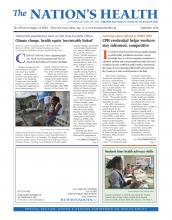Eating meals together as a family is associated with better social, emotional and nutritional well-being in parents, not just kids, a new study shows.
According to a study published online May 7 in Preventive Medicine, findings from the University of Minnesota-School of Public Health’s Project EAT — a cohort study on nutritional, physical and mental well-being of people as they mature — found that parents who ate meals with their families reported better social and emotional health and quality nutrition.
Previous research found that there are positive associations between frequent family meals and children’s nutrition, eating behaviors and emotional well-being.
“This suggests that family meals may provide an opportunity to improve the well-being of the entire family — not just children and young people,” said Jennifer Utter, PhD, MPH, lead author of the study, in a news release.
The new study found similar results for both mothers and fathers. The study found eating frequent family meals was associated with better family functioning, stronger relationships and greater self-esteem. It also was linked to a decrease in depressive symptoms and lower stress indexes.
Researchers also found that parents who ate frequent family meals consumed more fruits and vegetables. There were no significant relationships between frequency of family meals and body mass index, fast food consumption or daily servings of sugar-sweetened beverages.
For more information, visit www.sphresearch.umn.edu/epi/project-eat.
- Copyright The Nation’s Health, American Public Health Association









